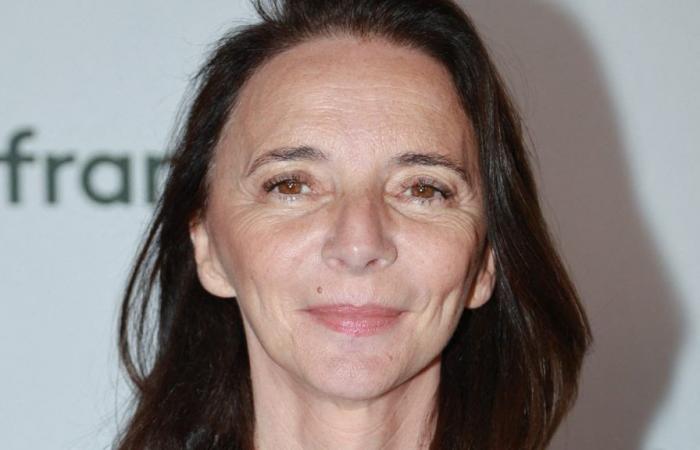
How do you go from being the daughter of Breton farmers to being a war reporter?
Maryse Burgot. It wasn’t easy at all since around me, there was no journalist, obviously, and even no professor. It was a very agricultural world, I couldn’t imagine myself. I didn’t have any books around me, it wasn’t an intellectual environment. I was lucky enough not to be a bad student; little by little, I developed a taste for reading and a desire to learn. On the other hand, my parents are people who have worked extremely hard all their lives, who have never taken a vacation and who have a very small pension. This is a great injustice. So I was missing something to approach journalism schools and the Parisian world. It wasn’t easy, but possible, yes. This is also why I wrote this book. This is a message for the younger generation. Even if we have the feeling of not being born in quite the right place, that we are less lucky than others, we can get there.
What have your roots given you throughout your journey?
A great work force. I’m a hard worker. And I very rarely give up. I am very resilient too. I’m 1.60 m tall, I’m kind of a little sparrow but I’m capable of crushing 1.90 m guys! (Laughs). I am very persistent, like my parents were.
From the beginning of the book, you address the hostage taking you suffered in the Philippines in 2000. Is the trauma still present?
When you’ve had an experience like that, you have it with you forever. I locked her in a box, I stopped her from harming me as soon as I returned to France. But it’s a wound, a scar. I had thought about not talking about it in my book but that would have been dishonest of me. It’s impossible to talk about this job without saying things as they are. This hostage-taking could have broken me, but no, quite the contrary. Now it’s my strength because I’ve tamed it over time, talking about it very little. When I returned to the editorial office, I didn’t want to be treated like a little thing, I told them: “MNow you will forget that I was a hostage and then we will do as before.”.
You speak of “humiliating experiences”…
Yes. It’s very humiliating to be deprived of your freedom, left at the foot of a tree in the jungle, surrounded by fighters, each one more stupid than the last. You are exposed as an object of curiosity.
You say that you have rituals after each report and return home. Is this a way to reconnect on a daily basis?
As crazy as it sounds, I’m a homebody. I spend my life traveling, but I love being at home. I love my house and my garden. When I’m gone for a month, I’m happy to see them again, I feel good, and I need to do all these daily things: washing machines, gardening, cleaning… It’s a bit obsessive. The children think I’m exaggerating but it does me a lot of good.
When you are in a country at war, everything always brings you back to your two sons…
All the time, yes. What is more dear, more important than your children? I can’t help it, they’re in my thoughts all the time. They are my foundation.
There is a wonderful anecdote in your book, when one of your sons calls you while you are reporting in Ukraine…
Yes, for cooking rice! At this point, there’s no way I’m going to tell him.No, but you don’t know where I am? I just escaped death !“No, I tell him.”then, you do it like this, like thata…“I refuse to burden them with my war, I have learned not to transmit any stress to them.
This is what all war reporters have in common…
And I understand it. When I leave, I have a banana up there, I tell them it’s going to be very cool. Today they are 20 and 23, but they have always been super confident. They never told me “astop doing that, it’s too dangerous“. Never. No one around me, for that matter.
Your book is populated by encounters, as much as memories. Is it also part of the job to remember these people you met?
Yes. Svetlana, courageous mother in the depths of the Kharkiv metro, Jerry France, little boy dying on the side of the sidewalk in Haiti, Katarina, old lady from Izioum who saves a Ukrainian soldier… It’s really deep and powerful to find all of them these characters, to immerse myself in their stories. What extraordinary luck to have done all this, what a richness…
Do you still have faith in humans and humanity?
I have returned from five weeks in Israel and I must say that it is a mission that is both exciting and difficult… I have produced subjects on the anniversary of the massacres of October 7, in Gaza, under the bombs. I did topics on Hezbollah, on the strikes against Lebanon. In short, the world is going crazy in the Middle East. And I’m very worried about it. I don’t know where we are going anymore… It’s incredible that the international community is so powerless. There is no leader in the world who manages to talk to Netanyahu, to force Hamas to negotiate. Why can’t we do it? How is this possible? I refuse to take sides in this conflict. As soon as I post about the October 7 attacks, I am accused of being pro-Israel. When I report on Gaza, I am accused of being pro-Palestine, when I am pro nothing! I report the facts from both sides and leave it up to people to form their own opinions.
Have your children read your book?
Yes, they liked it very much. My youngest son wants to become a journalist, a major reporter, to go to war zones. He is 20 years old. I wish him success. And I will never say that I am afraid for him, of course not. I trust him as he trusts me. He still has a little way to go but he’s a hard worker. I think he’ll get there.





